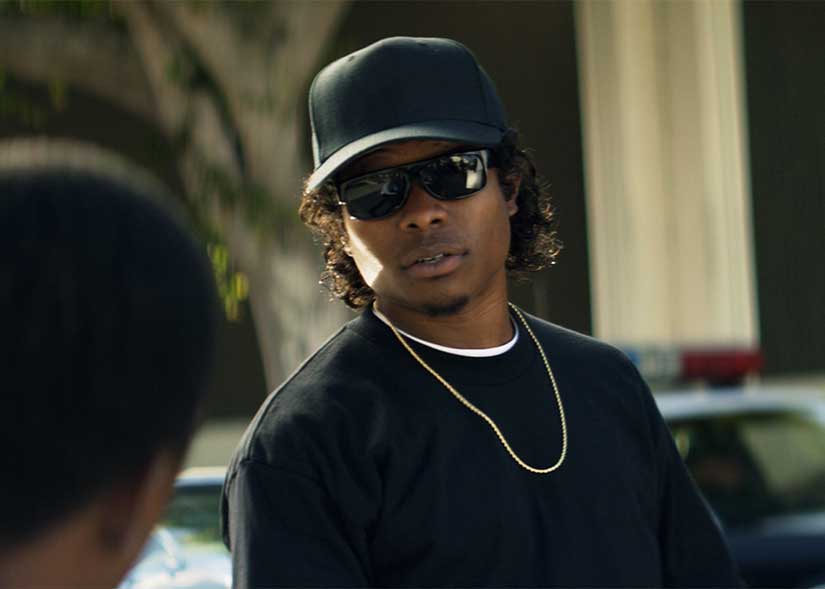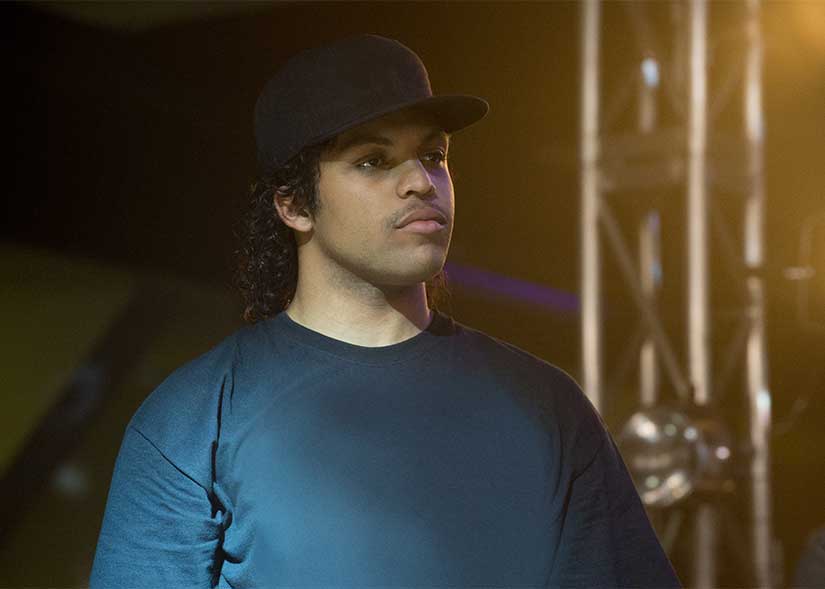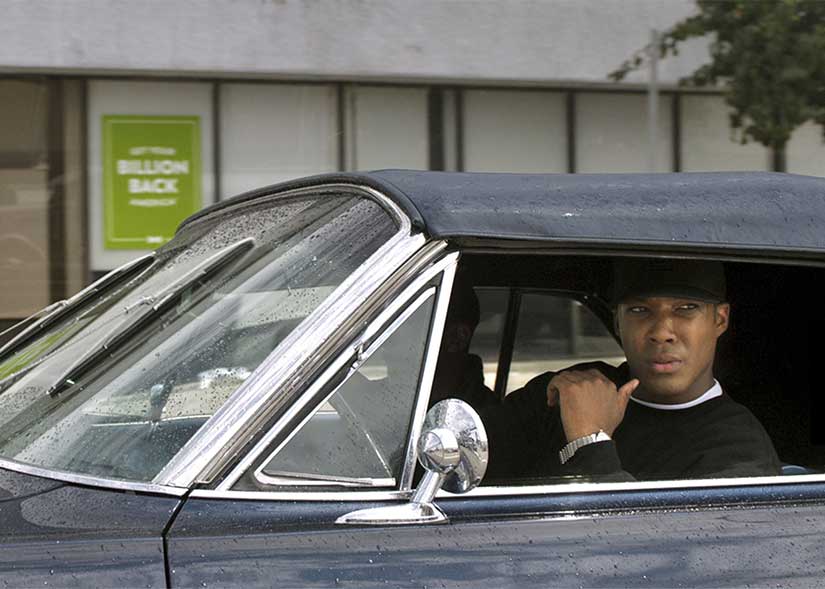Music biopics are tricky behemoths to tame because of the struggle to properly portray the cultural significance/relevance of the artist that necessitated the biopic’s development in the first place. However, for better or worse, Straight Outta Compton comes at the perfect time when the acts of police brutality that inspired and led to the formation of N.W.A back in the ’80s is front and center in the media today.
[youtube id=”OrlLcb7zYmw”]
Straight Outta Compton
Director: F. Gary Gray
Rating: R
Release Date: August 14, 2015
Straight Outta Compton begins in the mid-’80s just prior to the formation of N.W.A as the audience is introduced to Eazy-E (Jason Mitchell), Ice Cube (O’Shea Jackson, Jr.), and Dr. Dre (Corey Hawkins) separately, eventually tying the three together alongside MC Ren (Aldis Hodge) and DJ Yella (Neil Brow, Jr.). From the mid-to-late ’80s, the film depicts N.W.A’s early success, their first tour with manager Jerry Heller (Paul Giamatti) calling the shots… with his and Eazy-E’s best intentions in mind. The dynamic shifts, however, when Ice Cube and Heller clash over money, leading to Ice Cube’s departure and the beginning of N.W.A’s demise.
Before long, each member goes their own way as Ice Cube’s solo career begins to take off and his transition to films, Dr. Dre’s formation of Death Row Records with Suge Knight (R. Marcus Taylor) leads to his successful solo debut, The Chronic, and his collaborations with Snoop Dogg (Keith Stanfield) and Tupac Shakur (Marcc Rose), and Eazy-E’s desperate attempts to keep his Ruthless Records alive while he begins to suffer from the early symptoms of HIV.
Straight Outta Compton works on multiple levels that will appeal to nearly everybody. Whether you’re a fan of N.W.A, rap, or each rapper’s careers, you’ll appreciate the insight on N.W.A and the landscape of rap in the ’80s. In saying that, the film deals with the not-so subtle attack on the music industry and its shady dealings that are just as prevalent nowadays as it was nearly 30 years ago.
More importantly, Straight Outta Compton doesn’t censor itself or the acts of police violence that led to the inception of N.W.A. And as unfortunate as it may be, the film’s depictions of said acts of police brutality are very reminiscent of what we as a country have been facing in recent years. There’s one poignant scene in which Heller attempts to protect the group from racial profiling outside the studio, but must see first-hand the disrespect cops give to black people.
However, the entire film isn’t entirely grim. There are legitimately funny scenes scattered throughout the film, typically involving the interplay between the actors. For a music biopic that deals with such a serious topic, it was good to see Straight Outta Compton embrace some fun moments to break the tone from time to time in an effective manner.
Straight Outta Compton is strongest when Jackson, Jr, Mitchell, and Hawkins can share screen time and build off of the interplay between one another. However, as they begin to go their separate ways, the film attempts to follow along with them individually, losing the chemistry that made them so appealing to begin with. Because of this, the film begins to lose focus as the final act begins.
With Dr. Dre, Ice Cube, and Eazy-E’s widow, Tomica Woods-Wright, co-producing, Straight Outta Compton may be the most definitive look at N.W.A’s early days and its eventual dissolution. F. Gary Gray was the perfect director to handle the film as he treats its subjects with reverence. Straight Outta Compton is Gray’s return to grace following his latest films, 2009’s middling Law Abiding Citizen and 2005’s disappointing Be Cool.
Whether you’re interested in the musical aspects of the film, its damning social commentary on police brutality, or just approaching with curiosity, Straight Outta Compton is worth an opening weekend trip. Despite a final act that loses its way, Straight Outta Compton is the music biopic the genre needed to elevate its level of quality. Make sure you don’t miss it.



